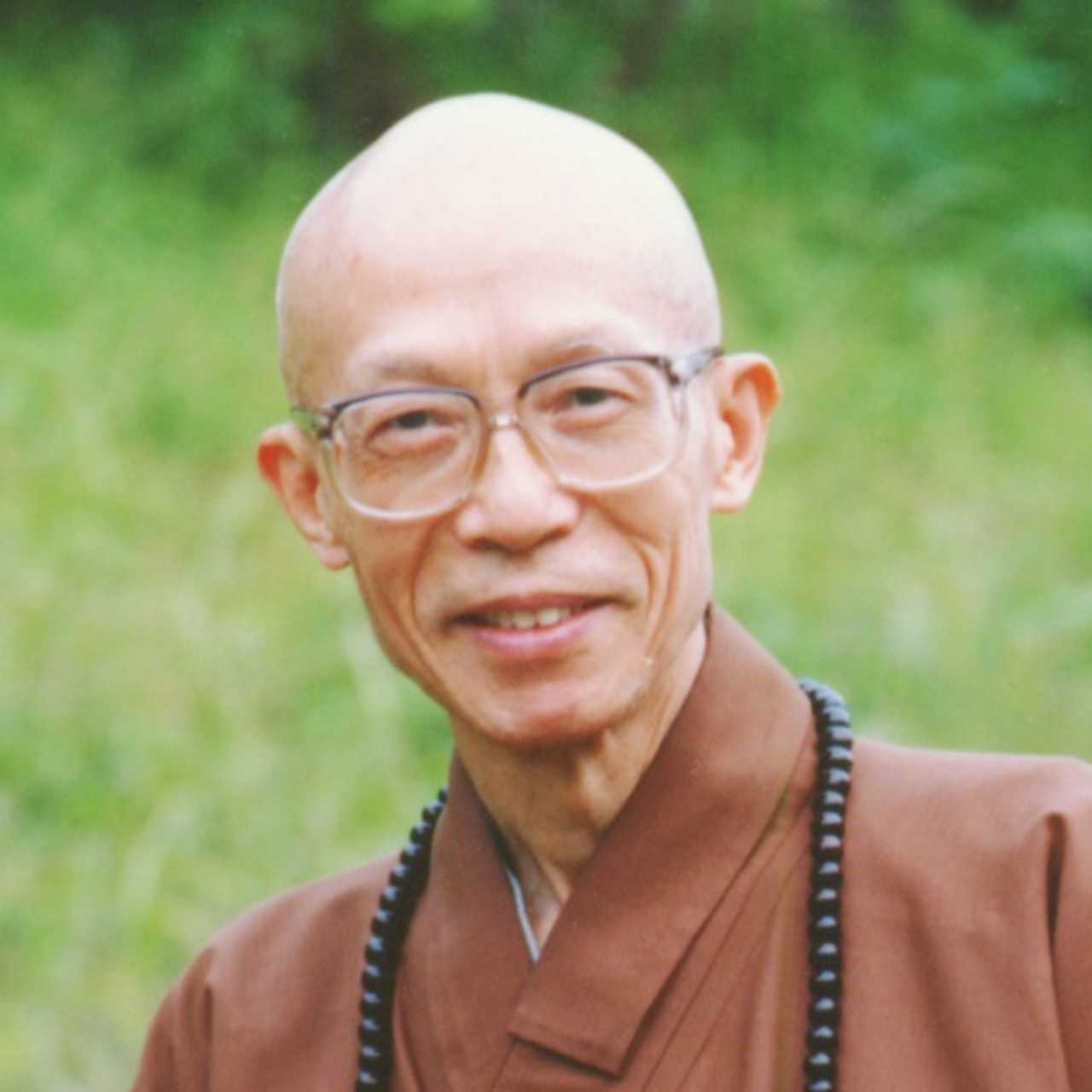A Small Insect Cannot Stop a Chariot

Excerpts from a talk by Chan Master Shengyen given at the Chan meditation Center, New York, edited with permission by John Crook. Published in Chan Magazine 12.1. Winter 1992 pp18-21
Even if an iron wheel whirls in your head perfect clear samadhi and wisdom are never lost.
You cannot cling to the idea that the genuine wisdom of enlightenment has concrete existence. Yet, if you accept and realise Dharma, then you will never lose this precious gem. The iron wheel is an ancient weapon, a spinning, red hot wheel with sharp blades that will cut and sear anything it touches. Once you attain the gem nothing can deter you in your practice, not even this frightening weapon whirling around your head.
We should have confidence in the Dharma and we should be willing to do anything to protect it even though there may be external forces trying to keep us from practice. External forces may be strong enough to cool the sun or heat the moon but determined practitioners will not let them interfere with their endeavour. Once upon a time a king was riding in a chariot and noticed a praying mantis standing on its hind legs in the road trying to block his progress. He said, "How can such a small creature stop my chariot? It has no idea how powerless it is!" There may be those who misunderstand the teachings but they are not capable of overthrowing Dharma.
One cannot judge enlightened people by their actions. One cannot say whether thay are sinful or sinless. Sages appear no different from ordinary people, yet indeed they are. This may create problems. Since the time of Buddha people have found faults in the actions of saints and sages by relying on their own, narrow-minded world view. Sages and sound practitioners are open-minded and have no concern for conventions others may prize highly.
An elephant treads a wide path. Prejudiced people are like rabbits that scamper along narrow paths and hide in burrows. The rabbit thinks the elephant is clumsy because it cannot walk down the narrow track and fit inside its burrow. A person who has never left a windowless room has no idea what the sky looks like. If he bores a small hole in the wall and peers through a hollow reed to examine the sky he will conclude that the sky is a little round patch of blue. If you tell him about the sun and moon, the galaxies, clouds, rainbows and stars he will think you crazy.
Yet, although a teacher may sometimes be eccentric or outlandish, he should not feel he is free to do anything he wants. Only under extraordinary circumstances should a master use special methods to instruct his followers. Unusual circumstances demand extraordinary methods. If, however, a master believes he or she is enlightened and can transcend the precepts, doing or saying whatever he pleases, then he is not a true master.
When Kumarajiva went to China in the fourth century, the Chinese Emperor thought that such a wise person should produce descendants to perpetuate his wisdom. So he gave concubines to Kumarajiva who had no choice but to accept them. Later his disciples, who were avowed celibate monks, asked him, "Can we have relations with women too?" Kumarajiva said, "Sure, but let me show you something." He took a handful of needles and ate them as if they were noodles. When he had swallowed the last one, he said, "If you can do that, then you can have relations with women!"
I hear many stories about immoral behaviour of masters in the West today. My attitude is this: if what is said about these teachers is indeed true and if they did indeed break the precepts and harm others then they are not true masters. None the less they may have served a good purpose in bringing the teachings to the West. They have given others an opportunity they may never have otherwise had. Their personal lives are their own problems but people should be grateful to them for their contributions. Unless action is required leave bad karma where you find it.
- Publication date:
- Modified date:
- Categories: 1992 Dharma Talks Sheng Yen
-
 Western Chan Fellowship CIO
Western Chan Fellowship CIO - Link to this page
©Western Chan Fellowship CIO 1997-2026. May not be quoted for commercial purposes. Anyone wishing to quote for non-commercial purposes may seek permission from the WCF Secretary.
The articles on this website have been submitted by various authors. The views expressed do not necessarily represent the views of the Western Chan Fellowship.
Permalink: https://w-c-f.org/Q372-121
